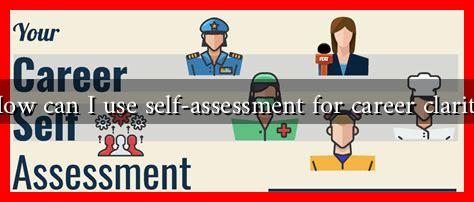-
Table of Contents
- How Can I Use Self-Assessment for Career Clarity?
- Understanding Self-Assessment
- Why Self-Assessment Matters
- Steps to Conduct a Self-Assessment
- 1. Identify Your Skills
- 2. Explore Your Interests
- 3. Assess Your Values
- 4. Utilize Assessment Tools
- Case Study: Sarah’s Journey to Career Clarity
- Statistics on Career Satisfaction
- Conclusion
How Can I Use Self-Assessment for Career Clarity?
In today’s fast-paced and ever-evolving job market, achieving career clarity is more important than ever. Self-assessment is a powerful tool that can help individuals understand their strengths, weaknesses, interests, and values, ultimately guiding them toward a fulfilling career path. This article explores how self-assessment can be utilized for career clarity, providing practical steps, examples, and insights.
Understanding Self-Assessment
Self-assessment involves a reflective process where individuals evaluate their skills, interests, and values. It can take various forms, including personality tests, skills inventories, and values assessments. The goal is to gain a deeper understanding of oneself, which can inform career decisions.
Why Self-Assessment Matters
Engaging in self-assessment can lead to several benefits:
- Increased Self-Awareness: Understanding your strengths and weaknesses can help you make informed career choices.
- Alignment with Career Goals: Self-assessment helps ensure that your career path aligns with your personal values and interests.
- Improved Decision-Making: With a clearer understanding of yourself, you can make better decisions regarding job opportunities and career changes.
Steps to Conduct a Self-Assessment
To effectively use self-assessment for career clarity, follow these steps:
1. Identify Your Skills
Begin by listing your hard and soft skills. Hard skills are specific, teachable abilities, while soft skills are interpersonal attributes. Consider the following:
- Technical skills (e.g., programming, data analysis)
- Communication skills (e.g., public speaking, writing)
- Leadership skills (e.g., team management, conflict resolution)
2. Explore Your Interests
Understanding what you enjoy doing is crucial for career satisfaction. Use tools like the Holland Code (RIASEC) to identify your interests. For example:
- Realistic: Hands-on activities, such as engineering or construction.
- Investigative: Analytical tasks, like research or data analysis.
- Artistic: Creative pursuits, such as design or writing.
3. Assess Your Values
Your values play a significant role in career satisfaction. Consider what matters most to you, such as:
- Work-life balance
- Job security
- Opportunities for advancement
4. Utilize Assessment Tools
There are numerous self-assessment tools available online. Some popular options include:
- 16 Personalities – A personality test based on the Myers-Briggs Type Indicator.
- Truity – Offers various assessments to help identify strengths and interests.
- CareerExplorer – Provides a comprehensive career assessment based on your preferences.
Case Study: Sarah’s Journey to Career Clarity
Consider the case of Sarah, a marketing professional who felt unfulfilled in her job. After conducting a self-assessment, she discovered her passion for creative writing and her strong communication skills. By aligning her career goals with her interests and values, Sarah transitioned to a role in content marketing, where she now thrives. This example illustrates how self-assessment can lead to significant career changes and increased job satisfaction.
Statistics on Career Satisfaction
According to a survey by Gallup, only 34% of U.S. employees feel engaged in their jobs. This statistic highlights the importance of finding a career that aligns with personal values and interests. Self-assessment can be a crucial step in achieving this alignment.
Conclusion
Self-assessment is a vital process for anyone seeking career clarity. By understanding your skills, interests, and values, you can make informed decisions that lead to a more fulfilling career. Whether you are just starting your career journey or considering a change, taking the time to reflect on your personal attributes can provide the clarity you need to succeed. Remember, the journey to career clarity is ongoing, and regular self-assessment can help you stay aligned with your evolving goals and aspirations.

